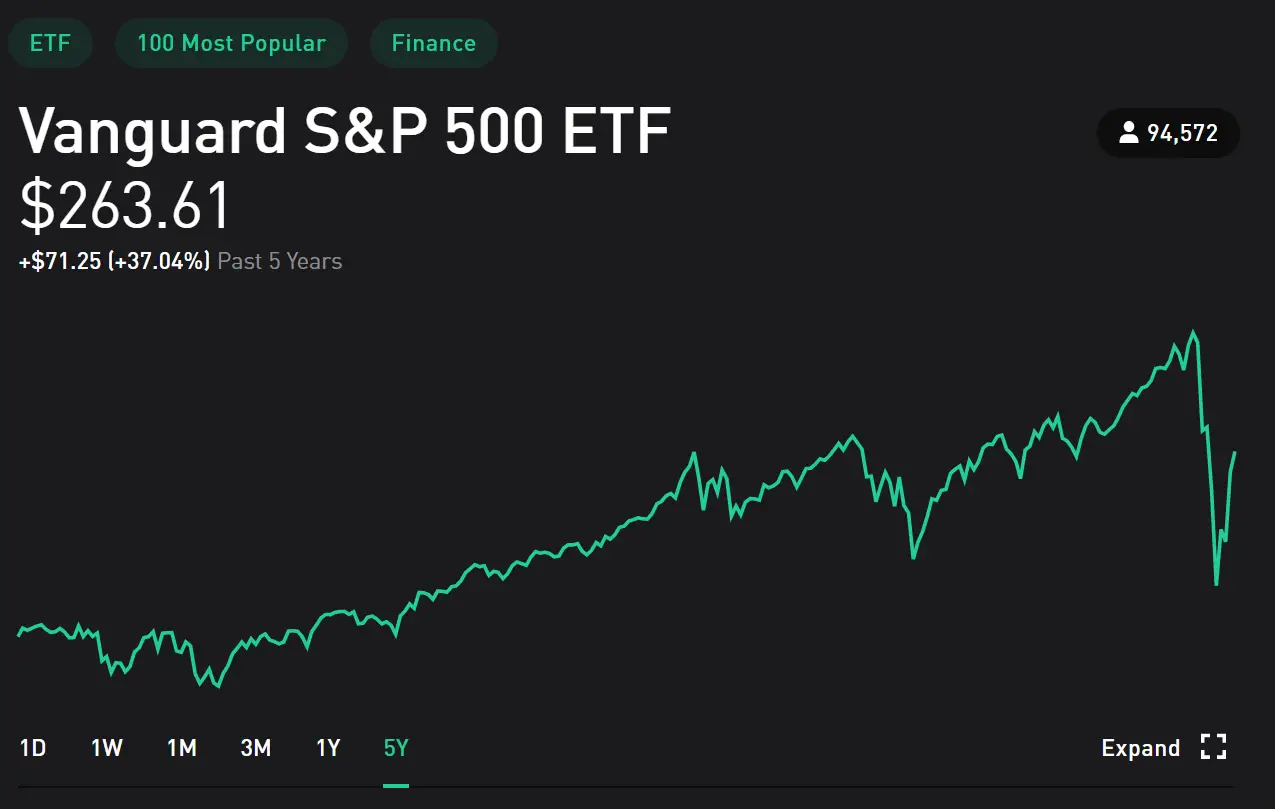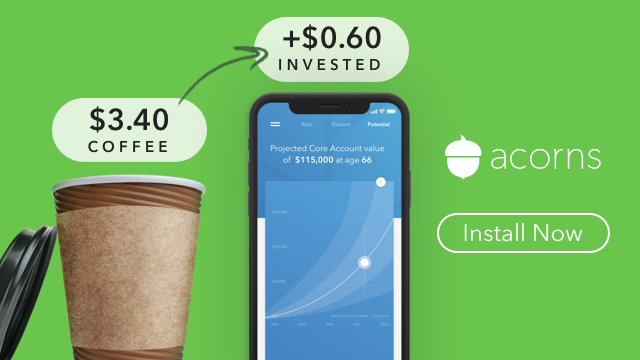Disclosure: This post may contain affiliate links that earn me a small commission, at no additional cost to you! See our disclaimer for details.
Your Guide to Index Funds
If you are new to investing, it can be difficult to figure out how to start, know how much money you need, and where to even begin!
You wonder where to trust to put your investment money and how to know if you’re doing it right.
Thankfully, index funds are meant to be easy to understand, easy to invest into, and pretty straightforward to know what you’ll get out of them.
They are an ideal part of a diversified portfolio and extremely important according to many famous money gurus.
Don’t understand the stock market? Here’s our explanation about the current bear market.
Index funds are low in cost compared to mutual funds, they are very low hassle, and extremely easy to track.
Keep reading to learn what these funds are and how to invest in your first index fund!
What is an Index Fund?
When you buy a stock, you buy a very small share of a publicly traded company. When you buy an index fund, you essentially buy a small package of all the top businesses in the category that the index fund is within.
Thing is, it would be really expensive to buy individual stocks of all the top companies out there.
To explain this further, let’s discuss the most popular index fund: The S&P 500.
The Standard & Poor’s 500 index (S&P 500) contains the most successful and large companies out there, including Microsoft, Apple, Google (Alphabet, Inc.), Facebook, Berkshire Hathaway… and the list goes on.
If one company goes down, another takes it’s place in an index and does not affect the whole’s value – unlike if you invested all your money into only one company.
Remember how it would be pricey and could be difficult to buy shares of individual stocks of these big companies? Let’s say you fully believed in Facebook and placed all your eggs in one basket. If they went bankrupt tomorrow you could lose all of your investment. However, if you invested in an index fund that had Facebook, another company would simply take their place and you wouldn’t notice.
But let’s say you don’t care about Facebook or Microsoft and like to support other companies that are important to you. Good news – there are index funds for nearly every category of the market out there!
Some index fund categories include:
- Funds that track large companies (large-cap) like the Dow Jones Industrial Average (DIJA)
- Funds that track small companies (small-cap) like the Russell 2000
- Funds that track bonds like the Barclays Capital U.S. Aggregate Bond Index
There are index funds for if you want to invest in businesses that are in the health industry, emerging markets, technology, or even international companies.
Index funds allow you to invest in the top businesses and although your money may not be anything more than the average with growth, it is still more guaranteed.
Not sure if you’re ready to invest? Discover your personal net worth and understand your financial situation right now.

The Easiest Investing Method You’ll Find
Index funds are considered passive investing – which makes them far easier to handle than day trading, for example.
With active stock investing, you get to chose individual stocks, and buy/sell as you wish. There is a lot of study that is recommended with active stock investing because you’d need to understand the market and have spent countless hours analyzing stocks. But, that’s not what we’re doing today.
If you’d choose to have a fund manager do active trading for you, this would require someone to try to strategize when to buy and sell, and try to outbeat the market – which is very difficult and nearly impossible if you were to try on your own.
In fact, 85% of actively managed large-cap funds underperformed compared to simply investing in the S&P 500. That’s saying something!
Index funds are popular for two reasons:
- The average return is around 10% annually, before inflation
- All you have to do is put money in. No need to return to do anything else!
The reason it is called “passive” is because you buy and…that’s it! Index funds don’t require any additional need to watch the market or to keep an eye for when to sell shares. If you’re looking for an easy way out when it comes to the stock market, index funds will be your friend!
How Much Do I Get in Return?
Warren Buffet has famously proven that index funds have great return over many years. The average return is approximately 10% annually.
It is important to realize that not every year will earn you this amount, but it is an average that has historically helped many increase their wealth.
Interested in buying stocks? Learn how to start investing in single stocks with this guide.
How to Start Investing in Index Funds
There are a ton of ways you can buy index funds. You can buy them through mutual fund companies like Fidelity or through a brokerage. The same goes for ETFs (exchange traded funds) which are essentially mutual funds that trade like stocks.
Sounds too difficult? You can start investing on your own phone! Check out a few options below!
Option 1: Robinhood
Robinhood is always a great place for beginners to start because the app and service is completely free and you can get a free stock (with our link below) that allows you to start watching the market without any investment at all.
You can invest in an index fund or a popular exchange traded fund (ETF) that mimic the performance of index funds. The picture below is an example of the Vanguard S&P 500 on Robinhood which is extremely close to the all-time popular S&P 500 index fund.
Get your free stock here!

Option 2: Acorns
Acorns, makes the “saving and investing” process 10x simpler than any other option out there.
At the cost of $1/month, it’s a simplified way to save and invest money, with the minimum of $5 to invest. Their “Round Up” tool allows you to save cash without even thinking about it – then, you can easily invest $5 or more in fractional shares within the same app!
Get your free $10 here!

Ready to learn more? Check out the 10 most popular investing books right now!
So, Why Invest in Index Funds?
By now you have a good foundation about what index funds are and how they differ from buy an individual stock.
They are a popular option if you like to “play it safe” with investing, or if you simply are new or inexperienced!
Once you get onto a platform like Robinhood and start looking at the 1-year and 5-year improvements that many of these index funds have had, you’ll be able to understand how these indexes grow over time.
Investing in these funds are for the long-term, but at an average of 10% annual growth, you can quickly start to calculate how much you can earn after a handful of years! Plus, it takes away the guesswork that comes with active stock investing, and gives you a sense of more security!

